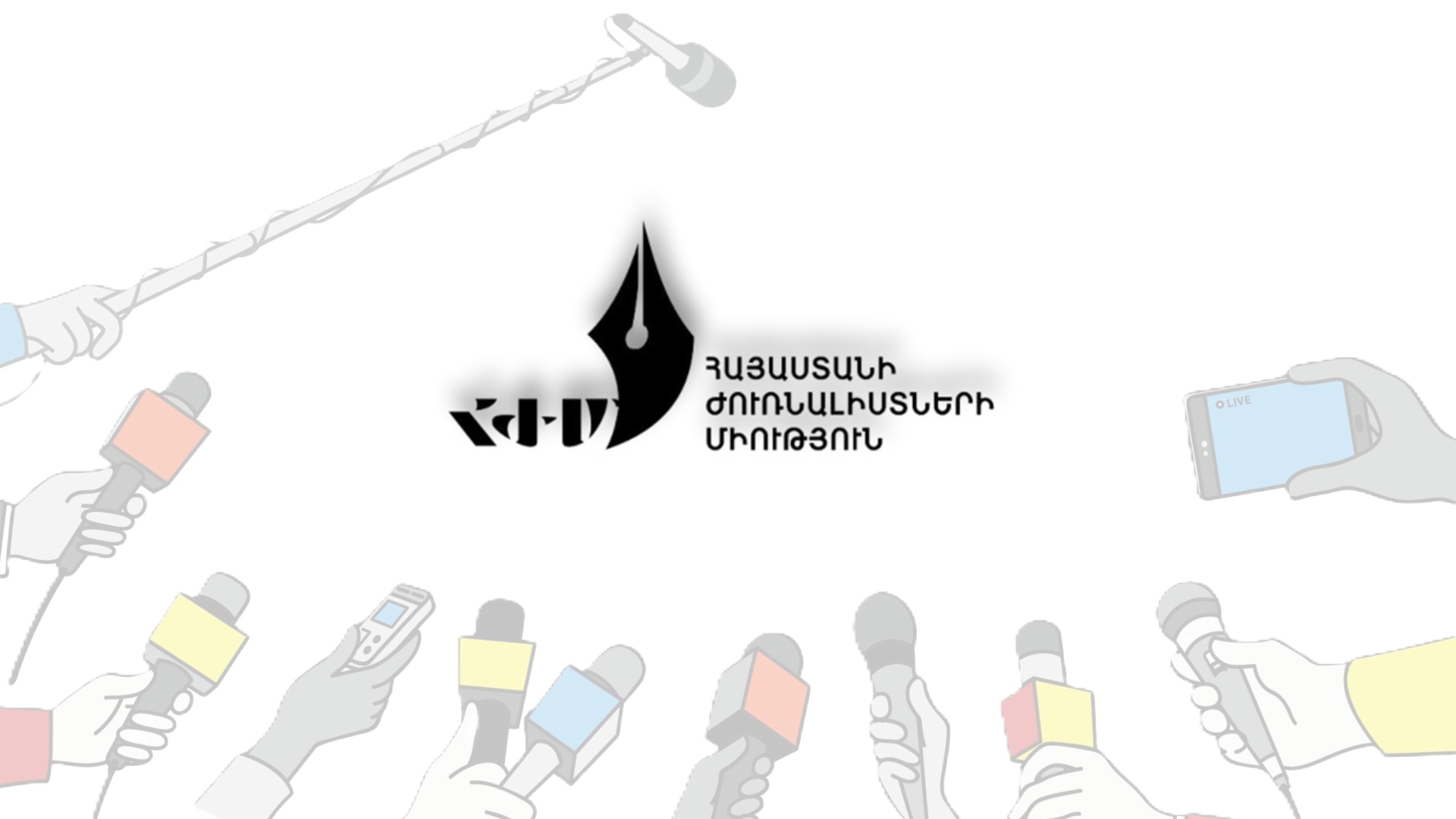Dear colleagues,
The campaign against journalists in Armenia that began after the 2018 “velvet revolution” not only continues, but also takes on new manifestations.
The current government has clearly adopted a policy of openly intimidating journalists.
There is no other way to explain the recent attacks by government MPs against journalists, including targeting them on social media and websites that appear under the name of media outlets affiliated with them.
On April 18, in the National Assembly, Khachatur Sukiasyan, a businessman and deputy from the ruling Civil Contract faction, once again targeted Factor.am journalist Narek Kirakosyan, clearly hindering his journalistic activities, while the latter was carrying out his professional activities.
Any journalist has the right to ask any deputy a question inside the National Assembly building, and answering those questions is part of the deputy’s job.
The journalist was trying to exercise that very right when the ruling party MP, without listening to the content of the question, lost his self-control, started shouting, hitting the journalist’s microphone, waving his phone, insulting him, and pointing his finger at him.
Such unacceptable behavior towards journalists, unfortunately, is not anything new, it is reaching new levels, and the reason is that the ruling party MPs consider themselves impunity, since they are not only not publicly condemned, but also not subject to any legal responsibility.
Such phenomena are contagious and take on new manifestations due to impunity, targeting journalists and their work. The authorities make journalists a scapegoat in any situation, sowing hatred towards them.
This impunity is the reason for new cases and manifestations of targeting journalists.
Members of a small but rather aggressive group protesting against the President of the Republic of Artsakh, Samvel Shahramanyan, near the Artsakh representation in Yerevan, displayed despicable behavior, making reprehensible insults to journalists, shouting at them, and “ordering” them to leave and not to cover the action.
It is not up to any person or group carrying out public activities in a public place to decide what journalists will cover, how, or what questions they will or will not be asked. The right to ask questions belongs to the journalist, the right to answer or not to answer belongs to those carrying out the action.
No one can instruct a journalist how to work, no one has the right to shout at journalists, insult them, and even more so, to take actions that make their work impossible.
A journalist’s activities must be unhindered; a journalist should not work under any security threats.
The Union of Journalists of Armenia appeals to its partner organizations, the European Federation of Journalists (EFJ) and the International Federation of Journalists (IFJ), informing them that not only is the work of journalists hindered in the legislative body of the Republic of Armenia, which is endowed with a primary mandate, but they also work in the Parliament under daily direct threats and insults from individual deputies of the ruling party, and asks them to condemn, include in relevant reports, and support partner international organizations in addressing the problem and thereby reining in the representatives of the government.
The authorities, who have declared Armenia a “Democratic Bastion”, are persecuting journalists and media outlets in the name of false democracy and false western values, obstructing the right to free speech and instilling hatred towards media outlets and journalists, who are already working in extremely difficult conditions created by these authorities to the detriment of the media by amended laws. The authorities are doing everything they can to ensure that targeted and one-sided propaganda takes priority in the country, using tools typical of authoritarian governments.
Freedom of speech is one of the milestones of a democratic state, which, however, in Armenia has turned into a tool for targeted propaganda, information retaliation, and manipulation of society, spreading falsehoods. Journalists and media outlets with opposition views often find themselves the target of information and propaganda attacks on social networks of the authorities and on news and non-news websites affiliated with them, are deprived of answers to their questions addressed to state agencies, are not invited to cover events with the participation of the authorities, and in some cases are forcibly evicted from the scene by security officers.
The Union of Journalists of Armenia once again calls on journalists not to give in to provocations, to adhere to the rules of journalistic ethics, and to work within the framework of their professionalism.
UNION OF JOURNALISTS OF ARMENIA

